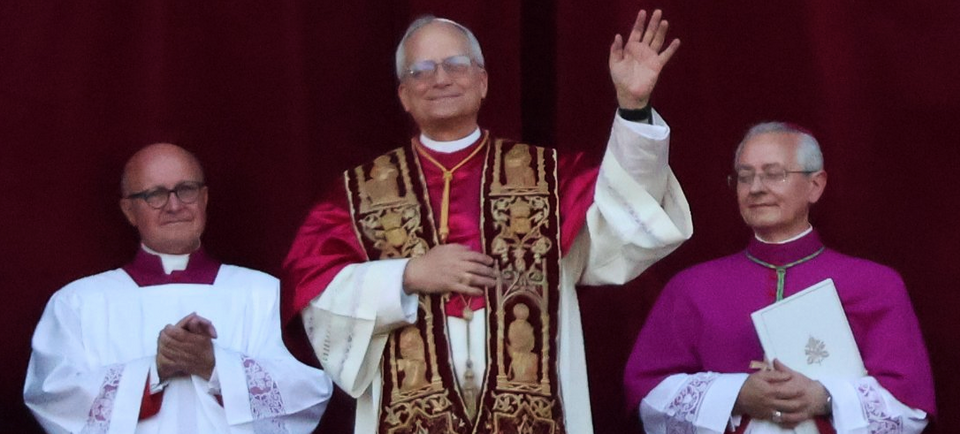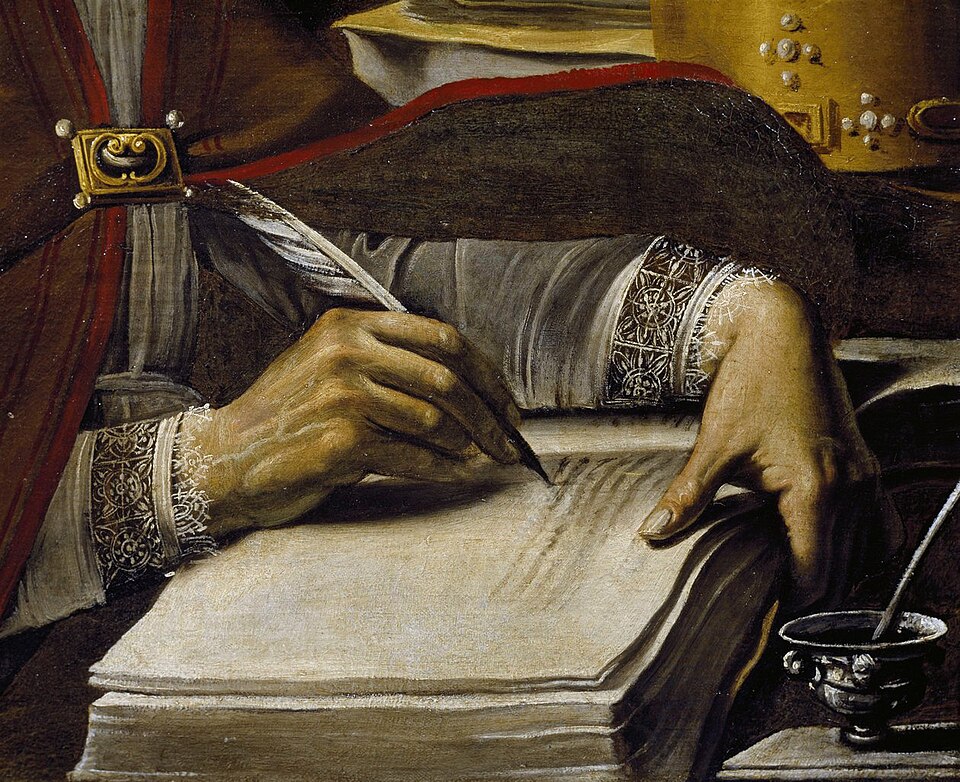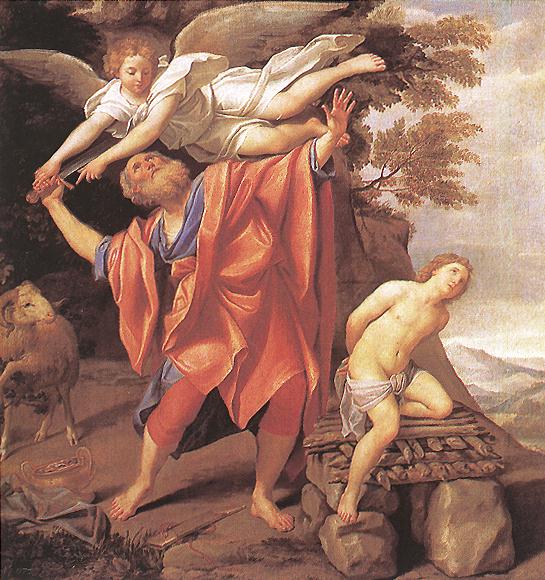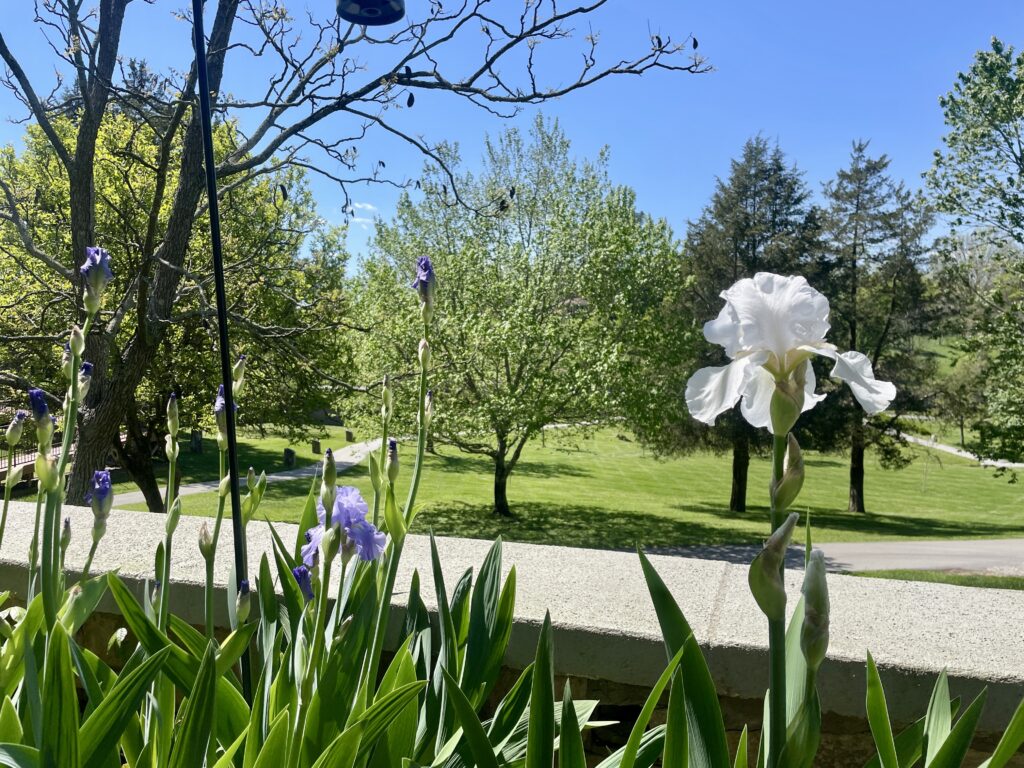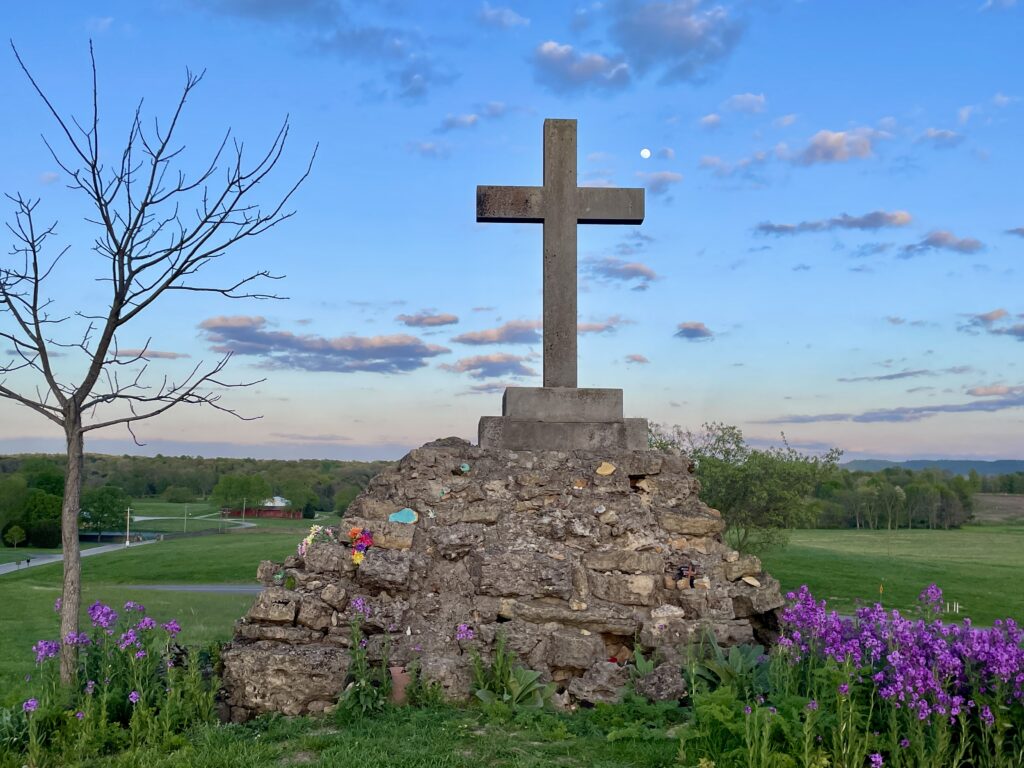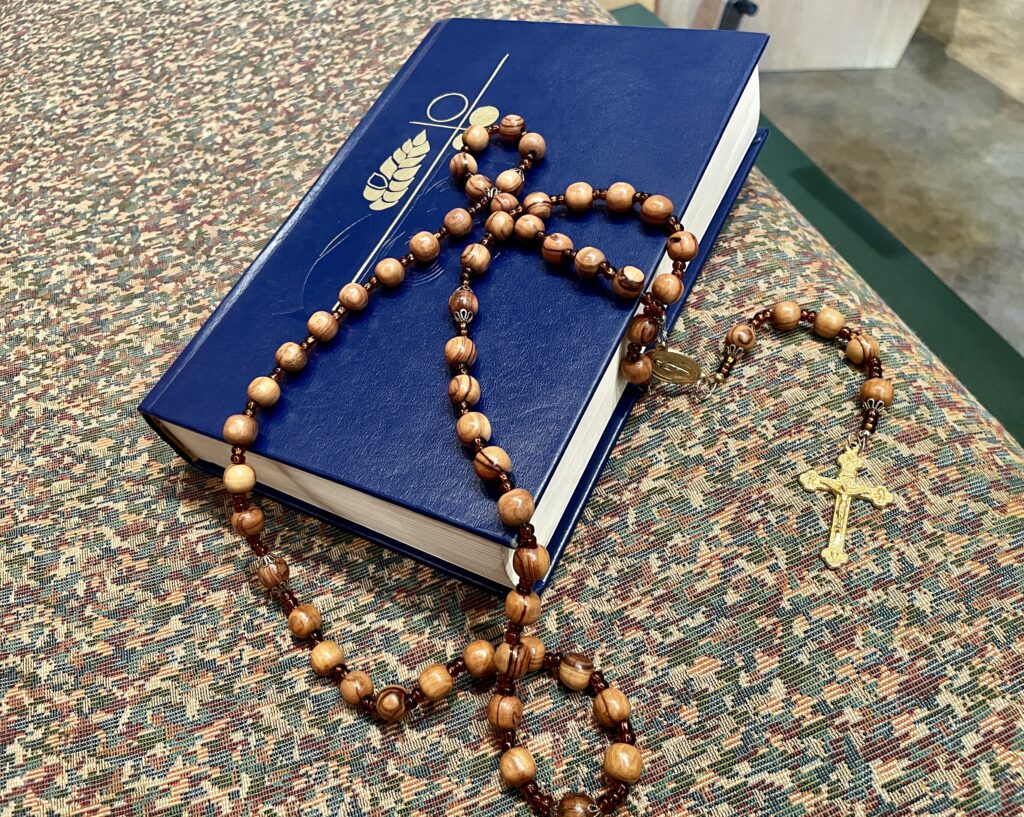As part of the course sequence for my master’s in theology at Catholic International University, I’m taking a course on Scripture and Salvation History, and, of course, we started at the beginning with Genesis and Creation.
We’ve also been discussing Creation with our parish’s newest candidates/catechumens, who are discerning if they should join the Church by entering RCIA/OCIA, and I have a lot of fascinating things I’ve learned, most of which I bet you’ve never heard, that I want to share with you.
Genesis 1 Compared With Other Ancient Creation Stories

Genesis is not the only story of creation. There are many other ancient versions that share similar stories. So why is ours right?
Some Christian critics will point to the similarities between Genesis and the other accounts and say ours is just one among many, just another creation story… But these similarities are INTENTIONAL. Other ancient accounts leave humans as slaves to the gods or the byproduct of gods procreating to create humans to do work for them. There is no dignity for humans here.
The Institute for Catholic Culture has a great FREE lecture by Dr. Anthony Esolen
on 2 other ancient creation stories, the Epic of Gilgamesh, Hesiod’s “Theogony” and The Enuma Elish, explaining the differences and similarities to Genesis.
The author of Genesis wants to show that, in fact, the ONE TRUE God is quite the opposite. The author intentionally uses similar imagery to make a deliberate comparison to OTHER creation stories to show this is the ONE TRUE creation story with a God who creates out of love, and not out of necessity, because, after all, God needs NOTHING.
Our God LOVES humanity and created us with dignity and purpose as a sheer gift of love. We are not slaves to God, and instead are offered the opportunity love God. And our God is intimately involved in the lives of humans as shown through His creation of Adam and Eve and throughout the Bible.
Have you ever noticed in Genesis 1:26 the first hint of the Trinity (Father, Son and Holy Spirit)? God says “Let US make human beings in OUR image, after OUR likeness.” So cool!
“Man” as “Idol”
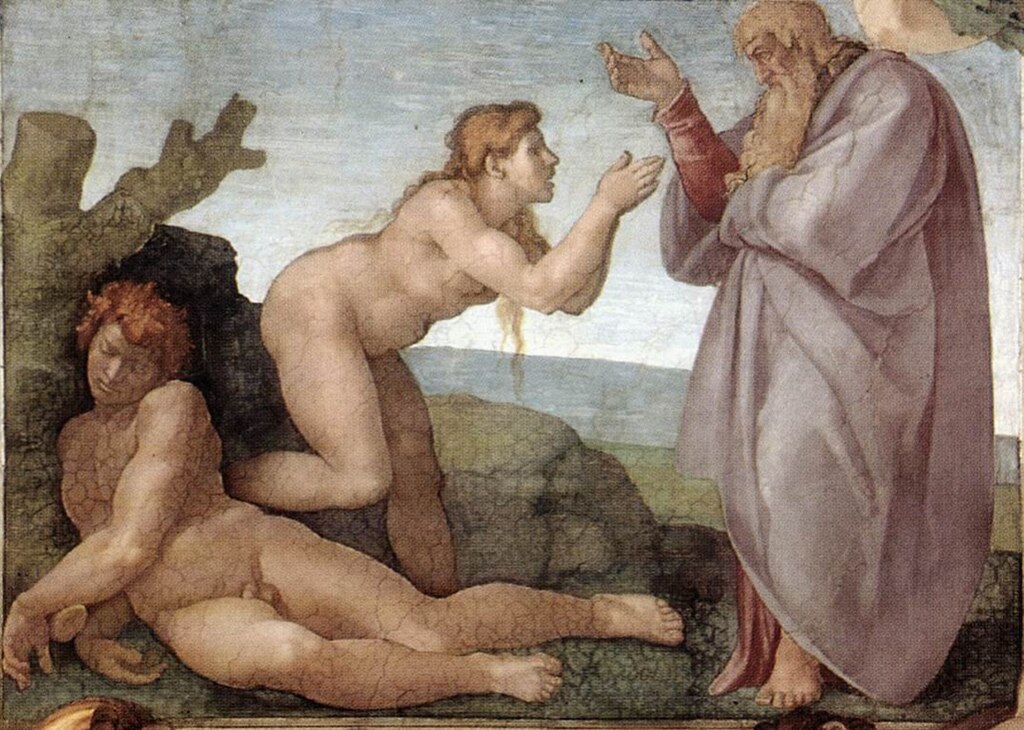
Michelangelo, “Creation of Eve,” Public domain, via Wikimedia Commons
When Genesis says God made man in his “image and likeness,” our professor taught us that these two words in Hebrew having surprising meanings.
First, the Hebrew word translated as “image” actually means “idol.” It’s the same word used when God tells Moses in the Ten Commandments that we shall not make any “idol” of God. What does this mean? WE are God’s idol. WE are the living embodiment of God. That is why we should not make other idols. God already made one: US!
An “idol” was also the place where the ancients encountered and worshiped their gods, so this also implies that if humans are idols, we, too, are the place where God is to be encountered and worshiped. That explains the importance of loving your neighbor that is emphasized throughout the Bible. Jesus tells us that second only to loving God is to love your neighbor. That’s because you encounter God in your neighbor. Let us remember the example of Mother Teresa in what the love of neighbor can look like.
Second, the Hebrew word translated as “likeness” actually means “shadow.” And doesn’t that make sense? Your shadow is like you — it has the same body, same hair, etc. — but it’s just a two-dimensional, no color rendering of who you are. It lacks the depth of who you are, just as we lack the depth of who God Is. Nevertheless, we maintain some of His qualities. What a privilege!
Man Made From a “Wet Clod” Not Dust!
In Genesis 3, we have the more detailed, “zoomed in” story of the creation of man in Adam and Eve. The word used to describe the material God used to make man, traditionally translated as “dust” (“Remember you are dust and to dust you shall return”), actually means something more like “wet clod”. The “dust” needs have something “wet” with it to make a human, a form of clay.
Remember the story in John Chapter 9 when Jesus spits in the dirt, rubs it together to make clay and rubs it over the eyes of the blind man, so that he can see? This harkens back to Creation. A) It shows Jesus as God, remaking man B) And it indicates Jesus is here to inaugurate a New Creation.
Choice is Key to Freedom and Salvation
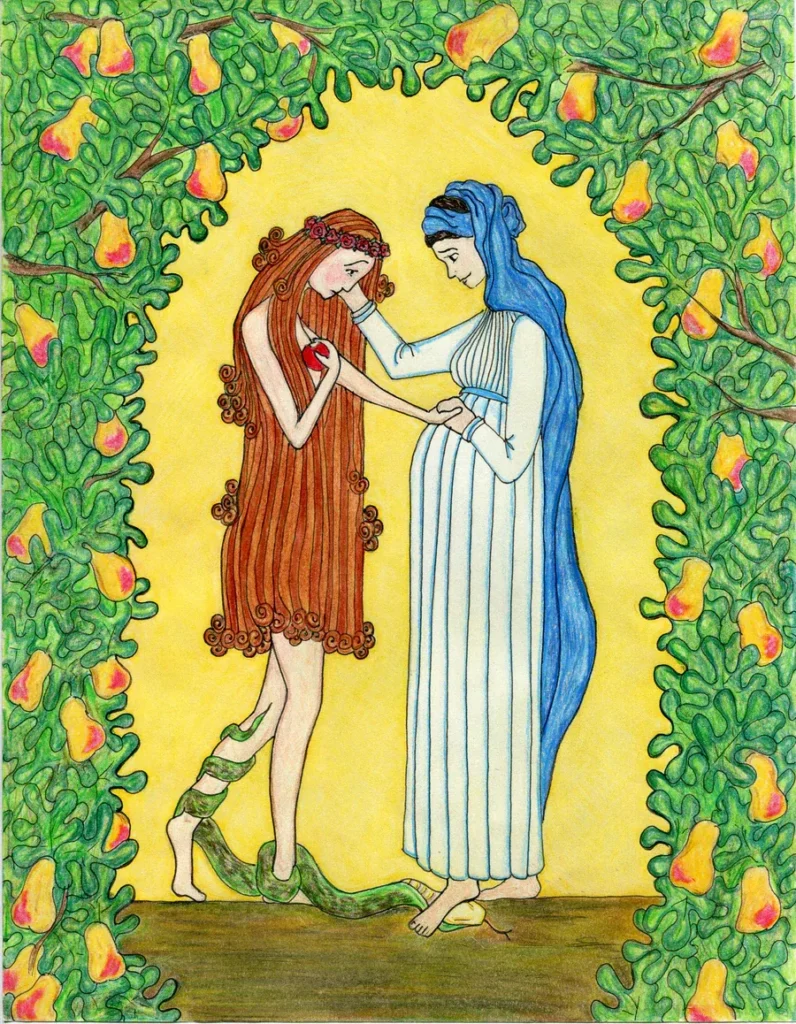
I absolutely LOVE this piece! It so beautifully captures the relationship between Mary and Eve and shows Mary’s gracious kindness toward Eve who is ashamed of what she has done. I believe this artwork is created by Sr. Grace Remington of Our Lady of the Mississippi Abbey in Iowa. You can support the sisters and this artwork by purchasing a print or cards here.
A theme I love to share with our soon-to-be Catholics at my parish is one of choice and free will.
This is something other Christian denominations do not necessarily hold. Many believe that we have no free will. God has already preordained everything and we are just living out the plan. We also have no choice in if we go to heaven or hell. God’s already decided.
Catholics have a different perspective. First of all, God made us out of a free gift of love. He desires that we love Him back. How can we love God, or anyone for that matter, if we don’t have the freedom to choose love? Love is not love if there is no choice.
I believe this is why God gave Adam and Eve the one prohibition in the Garden of Eden. They HAD to have a choice in order to have free will and to choose to love God. Was it really love if they had nothing else to choose but love?
It’s not that God is trying to “test” them. He’s giving them the option to know love – and that comes through choice.
I’m often asked in RCIA why God doesn’t just show up and make it completely CLEAR that there IS a God so we would know FOR SURE. Well, He did send His son and even that did not convince people. But if God made it so we couldn’t NOT believe, we would be back to not having freedom again.
It HAS to be our FREE choice. Faith requires a choice, a chance that it could NOT be true. If we HAVE to believe, that’s not love. Dr. Marcello D’Ambrosio, a professor from a previous class, said that God would not allow a miracle, even, that we did not have the freedom to say no to.
The Bible is ALL about choice. Mary CHOOSES to accept God’s call to bear His son with her “fiat” (her “yes,” her acceptance). She does not have to. Eve chose NOT to trust God; Mary chose TO trust him. And by doing so, she initiates all coming back into right order.
Adam and Eve’s Fall
Why did Adam and Eve choose to eat of the fruit? (Remember, Adam was right next to Eve when the serpent spoke to her, so he is equally as complicit.)
Eve said it was 1) good for food 2) pleasing to the eye 3) desirable for gaining wisdom. The snake told Eve that they “would be like gods” after eating. In my study of this chapter, our professor noted that the Hebrew word used for serpent was closely related to the word for divination, and a type of wisdom that seeks knowledge without or apart from God.
Isn’t that what Adam and Eve do? They reach out to gain wisdom WITHOUT the help of God, on their own initiative, out of their own pride. This is what the Tower of Babel builders will do later. Strive to build WITHOUT the help of God to be LIKE God by trying to reach the heavens on their own.
Isn’t that what we STILL do? I know I struggle with this. Somehow, I’m afraid of what God might ask me to do, so I seek to try to control the situation myself WITHOUT God’s help out of my own pride that somehow I can do it better.
Adam and Eve also sought to be LIKE God and the great irony is they were already LIKE God, made in His image and LIKEness, and by choosing against Him, they become LESS like God.
Genesis 3:15: The First Sign of a Savior, But WHO Will Do the “Crushing”
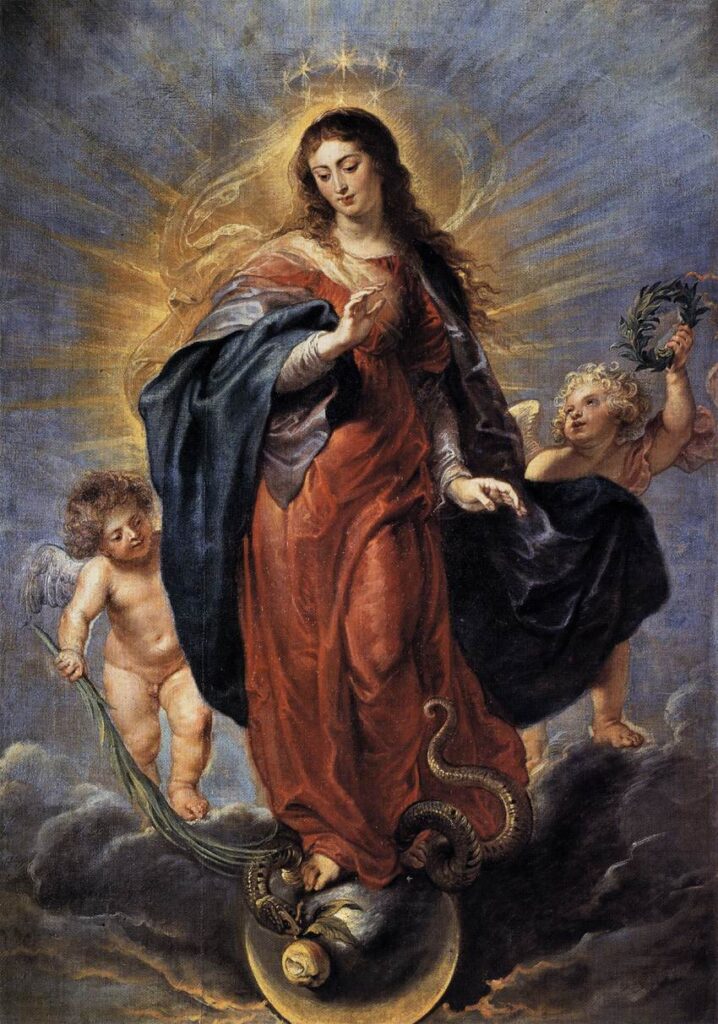
Peter Paul Rubens “Immaculate Conception”, Public domain, via Wikimedia Commons, showing Mary standing on the serpent.
Genesis 3:15 is referred to as the “protoevangelium.” That’s a fancy word that means the first “gospel,” or the first sign of hope that Adam and Eve’s choice of “no” can be undone.
The verse, which is God speaking to the serpent (Satan) and which comes after Adam and Eve choose to eat of the prohibited fruit, reads…
“I will put enmity between you and the woman, and between your seed/offspring and hers; they/he/she will strike at your head, while you strike at their/his/her heel.” (Genesis 3:15)
Another translation changes “strike at your head” to “crush your head” and “strike at their heel” to “lie in wait for their heel.”
I’d like to briefly dive into the various translations of “they,” “he” and “she.”
This verse is thought to refer to Jesus as the first mention of the savior that God would send and in fact, was interpreted by the Jewish people this way prior to Jesus.
Jesus is “the seed” or “the offspring” of “the woman.” Eve’s name means “woman,” and she is indeed the mother of all the living. But Jesus also calls Mary “woman” several times in the New Testament, making a deliberate connection between Mary and Eve, as we have already discussed in Mary’s “yes” to Eve’s “no.” Mary is seen in the Church as the New Eve, just as St. Paul calls Jesus the New Adam. So this passage also references Mary, through Eve.
Now, we get to “they/he/she” strike at your heel. In most modern translations, you will see “he,” obviously referring to Jesus. But St. Jerome, who translated the Bible from its original Hebrew and Greek into Latin, which was the common language at the time, in the 300s translated it to “she,” referring directly to Mary.
Mary is often depicted as standing over a snake (see above Peter Paul Rubens painting), including on the Miraculous Medal, which Mary appeared to St. Catherine Labouré and asked her to create, in a clear reference to her role of “striking the head of the snake.”
Why did St. Jerome translate it as “she”? I’m not sure we’ll know for sure. The Septuagint, the Greek translation of the Bible completed 100 years or so before Christ, uses “he” here. But Jerome went back to original Hebrew documents and did not translate his Bible directly from the Greek Septuagint.
When I asked my friend, Father Christopher Roberts, a brilliant man who passed away several years ago about this, he told me that Jerome had access to better Hebrew texts of the Bible via Jewish rabbis he had befriended, that the Septuagint translators did not. Jerome learned ancient Hebrew from these rabbis. What did Jerome see in those texts that we no longer have access to?
Lastly, some translations have “they,” including my New American Revised Edition Bible from 2011. “They” could mean both Jesus AND Mary or it could also mean all Christians. As a friend of mine pointed out that both are likely true, as we know the Bible has many, many layers of meaning.
A “Woman’s Seed”?
Another interesting facet to this passage is the reference to the woman’s “seed.” According to my professor, “seed” was only used in reference to the male “seed,” the literal way men are able to procreate with women. It takes the male’s “seed” for that to happen. So to say a woman’s “seed” makes NO sense. It’s a complete contradiction. And nowhere else in the Bible is such a phrase used.
What could this mean? It DOES make sense if you think about Mary’s virginal conception. There was no physical father providing a “seed,” so Jesus must be Mary’s physical “seed” alone. So the only way a woman could have a “seed” is if there is not a physical father, which happened once in history to Mary. Note: “Seed” is also sometimes translated as “offspring” here, but the Hebrew word referred to “seed.”
The Serpent’s Curse
One final note on this passage: When God curses Satan He says, “…dust shall thy eat all the days of thy life.” Remember “dust” was that from which Adam was created, which in Hebrew is afar.
So God is saying essentially, the serpent will eat/bite at the stuff from which man was made, basically man himself. Thus the devil will be at war with humanity.
There is SO much in Genesis and this barely scratched the surface, but it’s a look at some of the more interesting things I’ve come across in my studies, most of which I was not familiar with.
I hope you find them as fascinating as I do and realize if we can find this much in Genesis, in just the first 3 chapters, imagine how many lifetimes we could spend unpacking the many layers of meaning of the entire Bible!
